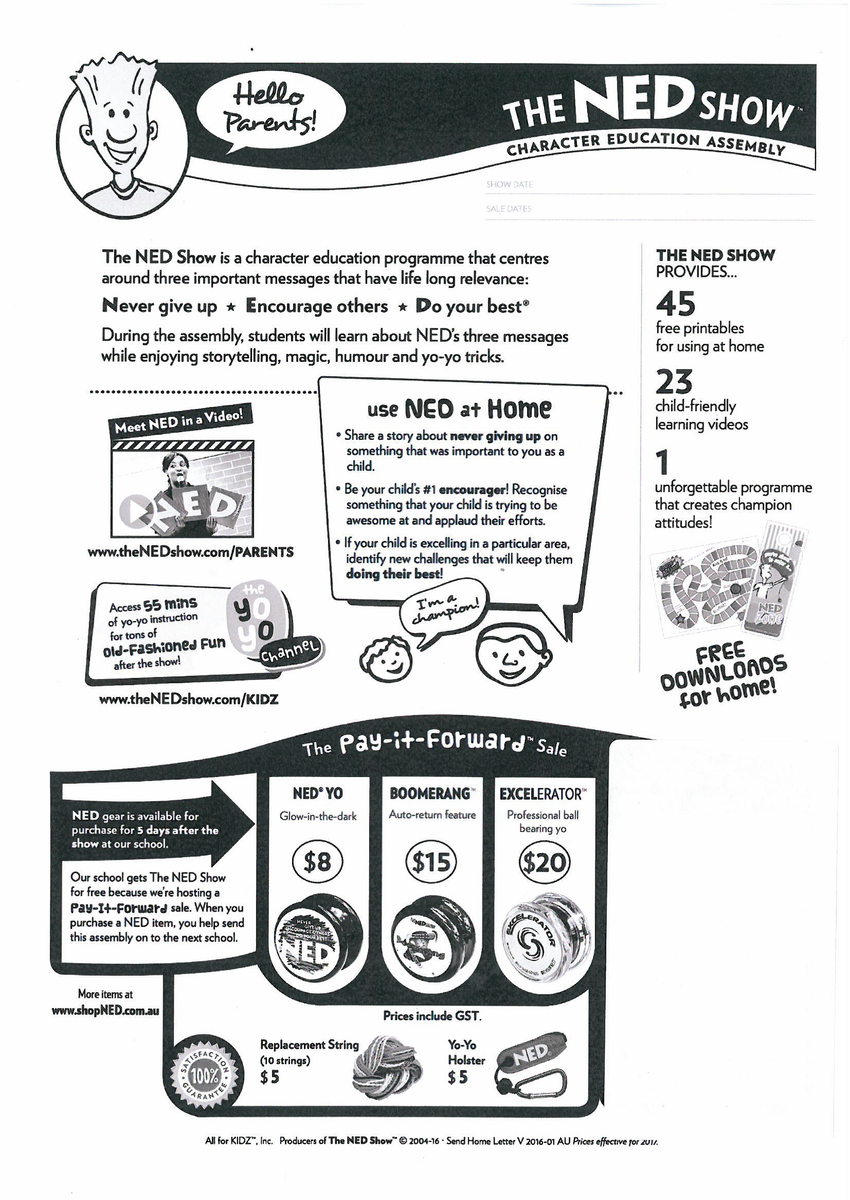Student Wellbeing

Positive Parenting
On the last Thursday of Term 2, we were fortunate to have Patrice Wiseman conduct a workshop on Positive Parenting for our Prep and Year 1 parents.
Patrice is a Learning and Behaviour Consultant with the Catholic Education Office Melbourne.
Patrice had a wealth of information, which she shared with us.
Please find the attached Handout, which you will find most helpful and applicable to all age groups.
POSITIVE PARENTING
PARENTS ARE ROLE-MODELS:
· Your child learns to behave by imitating your behaviour.
· Don't demonstrate behaviour that you wouldn't like to
see in your child
BUILD A POSITIVE RELATIONSHIP:
· Learn to separate the child from the behaviour.
· Try to remain calm and assertive.
· Use language strategies
LANGUAGE of CHOICE:· Use the words: Good choice or Poor/Bad choice ASSERTIVE STATEMENTS:
· Give a clear, short message in a calm, firm tone of voice:
Horatio, you need to ................"
· If your child still refuses to do as he/she has been told simply repeat the statement
Horatio, you need to ................"
· If he/she continues to argue, it is time to firmly give a warning of the consequence ............
Either (repeat assertive statement) or…………(name the consequence).
“It’s your choice”
HOME/SCHOOL RELATIONSHIP: · The message your child gets is vital· Always 2 sides to the story!HAVE A PLAN:
- Rules
- Rewards
- Consequences
To be successful parents must:
• clearly and firmly state rules or expectations
• be consistent
• follow through in a calm manner
• give praise when your child makes good choices
THE POWER OF PRAISE:
· The most powerful form of positive encouragement
· Tell your child specifically what he/she is doing or has done was a good choice.
· Special Privileges/ Rewards (Star Charts)
CONSEQUENCES:
· Be ready to back your words with actions!
· Consequences need to be:
. something the child doesn't like
. logically related to the misbehaviour
. given as soon as possible
. delivered in a calm manner
. consistently applied
. changed if proving ineffective
. applied and then....forgive and forget
KEY WORDS FOR SUCCESS
CALM
CHOICE
CONSISTENT
NED SHOW
THE NED SHOW
You may have noticed posters around the school advertising THE NED SHOW coming to Galilee on Monday, 31st July in our School Hall.
The whole school will attend the character education programme that centres around three important messages that have lifelong relevance:
Never give up
Encourage others
Do your best
During the presentation, the students will learn about NED’s three messages while enjoying storytelling, magic, humour and yo-yo tricks.
NED yo-yos will be available for purchase for 5 days after the show at Galilee.
Our school gets the NED Show for free because we’re hosting a Pay-it-Forward Sale.
There is definitely no compulsion to buy these yo-yos, but if you would like your child to have one,
they will be sold before and after school each day.
We are selling the yo-yos at $8, $15 or $20.
Could you please send the correct money with your child/children.
Please find the attached information and for further information please contact:
Julianne Price
Student Wellbeing /Student Services Leader
Ph. 96992928
email: jprice@gsmelbournesth.catholic.edu.au
Jeans for Genes Day
Grandparents Day
NATIONAL CONSISTENT COLLECTION OF DATA.
Nationally Consistent Collection of Data on School Students with Disability (NCCD)
All Education Ministers from Commonwealth, state and territory governments have endorsed the implementation of a nationally consistent collection of data on school students with disability in all Australian schools (government, independent and Catholic).
The nationally consistent approach to data collection provides all Australian schools, education authorities and the community with a clear picture of the number of students receiving adjustments because of disability in schools, and the adjustments they are provided to enable them to participate in education on the same basis as other students. The information provided by this data collection will enable all Australian governments to better target funding, support and resources.
All schools are requested to provide such data.
At Galilee, we will be only providing data on students who are currently:
- receiving Students With Disability (SWD) funding
- on Personalised Learning Plans
- attend Intervention programs e.g. Reading Recovery, Maths Intervention, Levelled Literacy Intervention
- have parents/carers attend PSG Meetings
- who have Medical Plans.
Please read the attached information for more details.
If you believe your child/ren may be one of these students and you do not want their names submitted on the CECV data, please sign the consent form and return to school by Friday, 4th August.
If you require further information or clarification please do not hesitate to contact me.
Julianne Price
Student Wellbeing /Student Services Leader
Ph. 96992928





